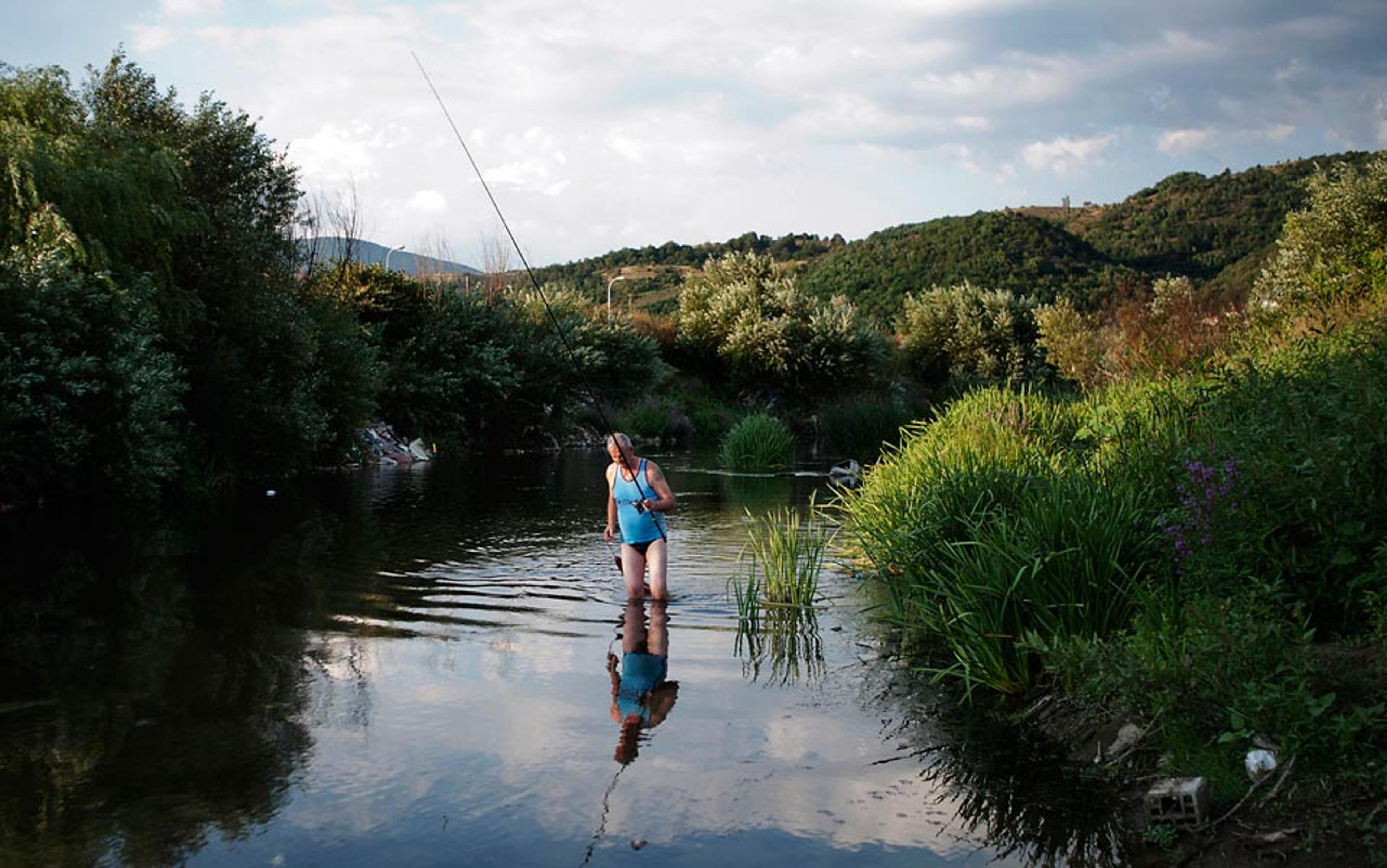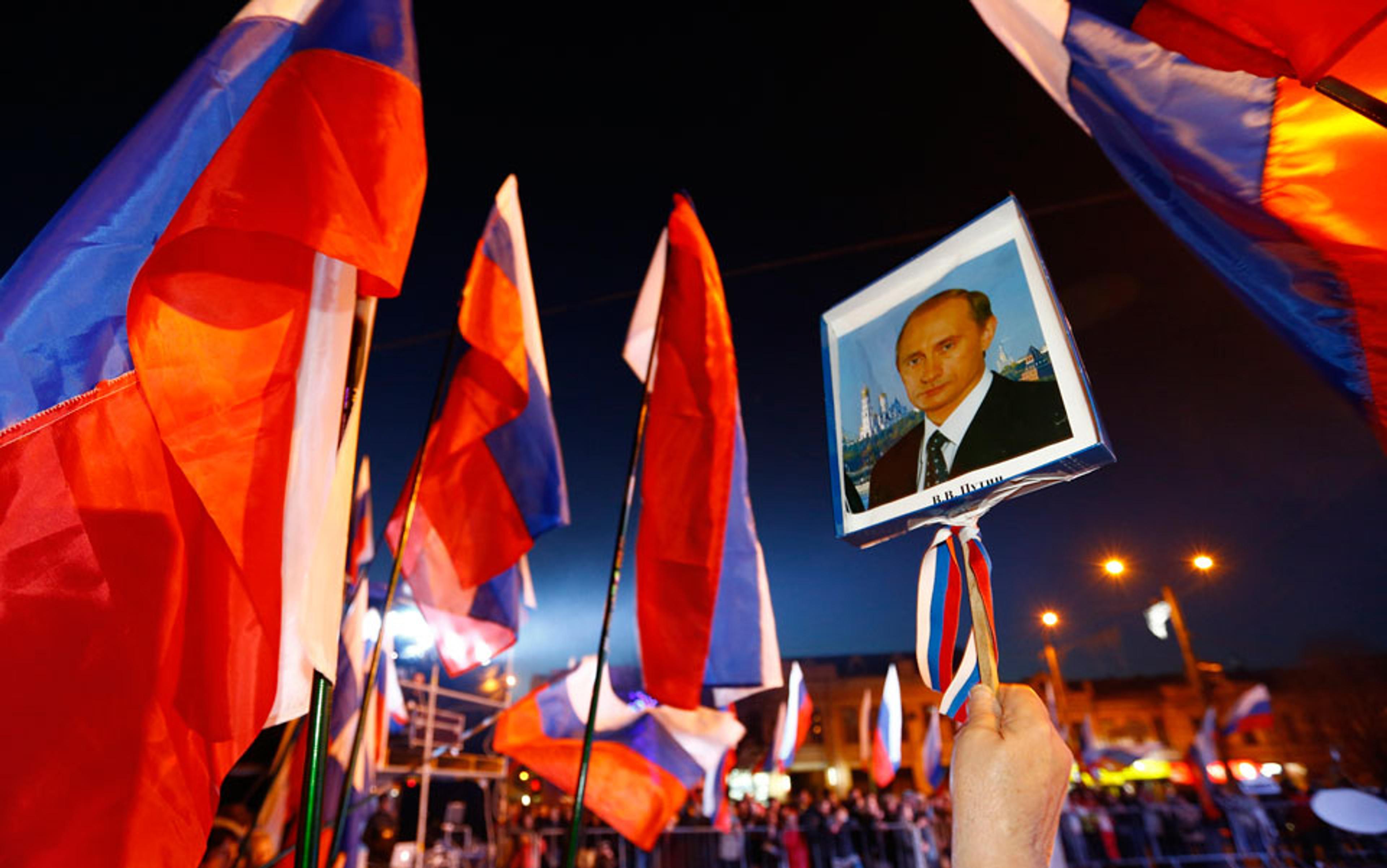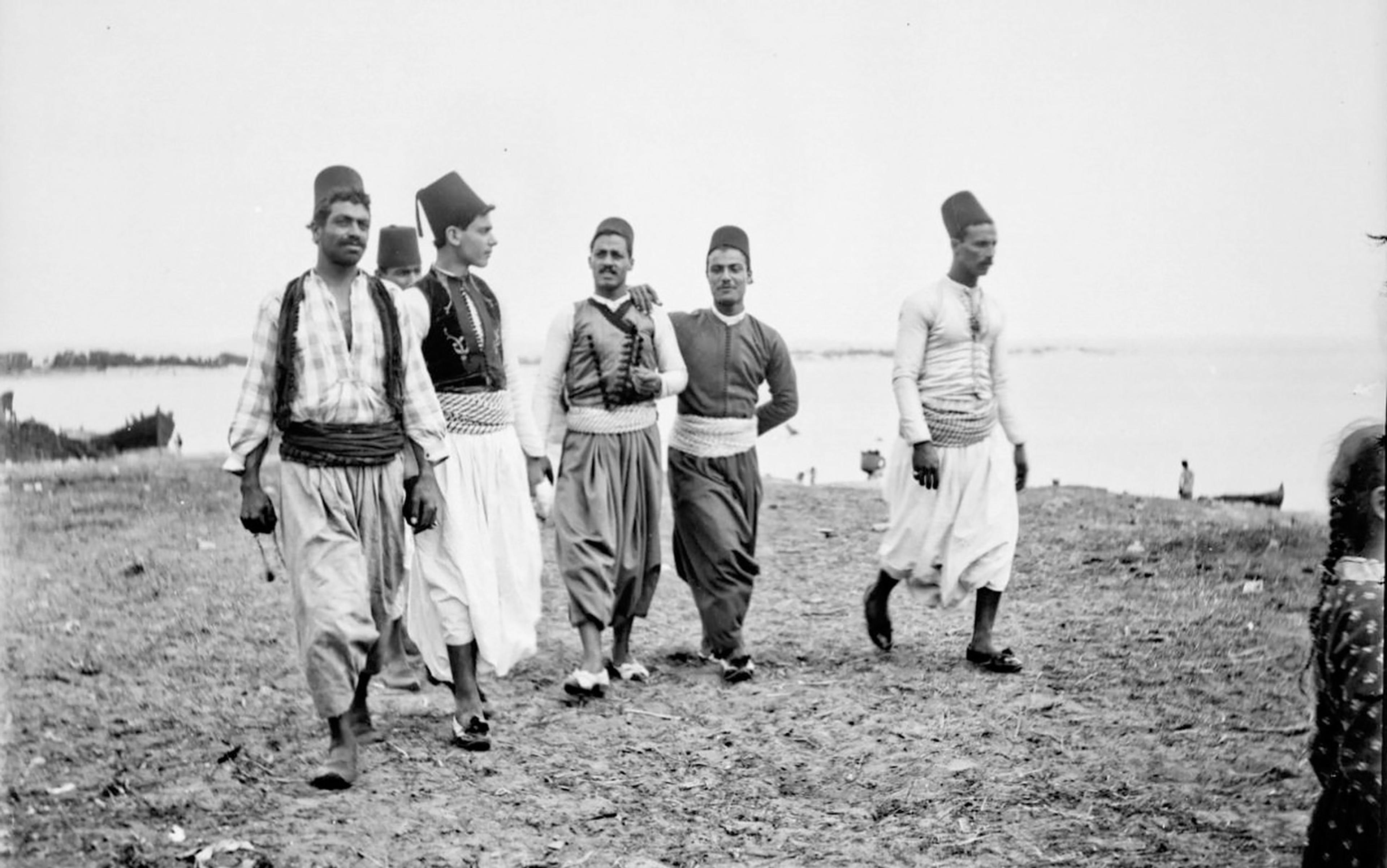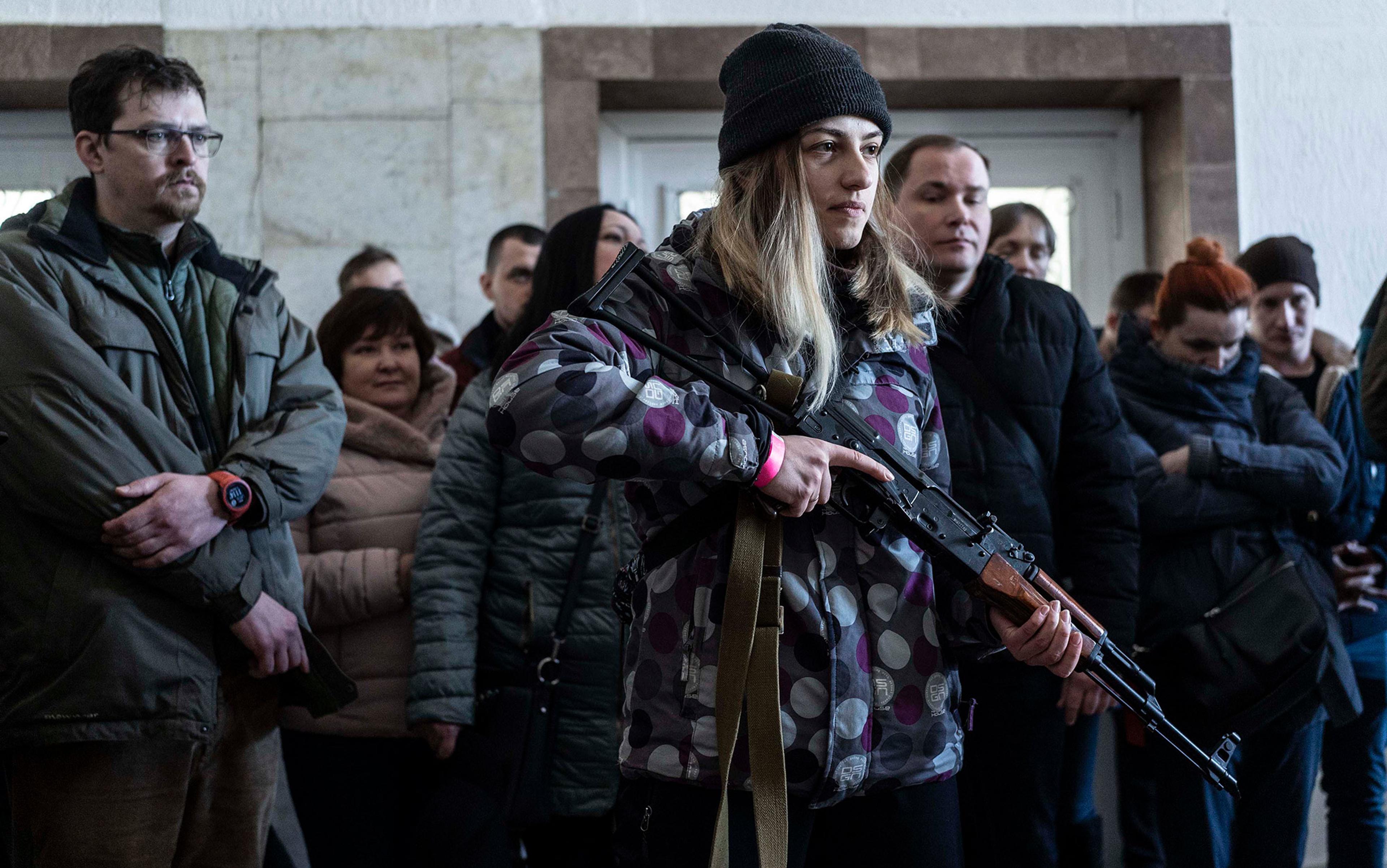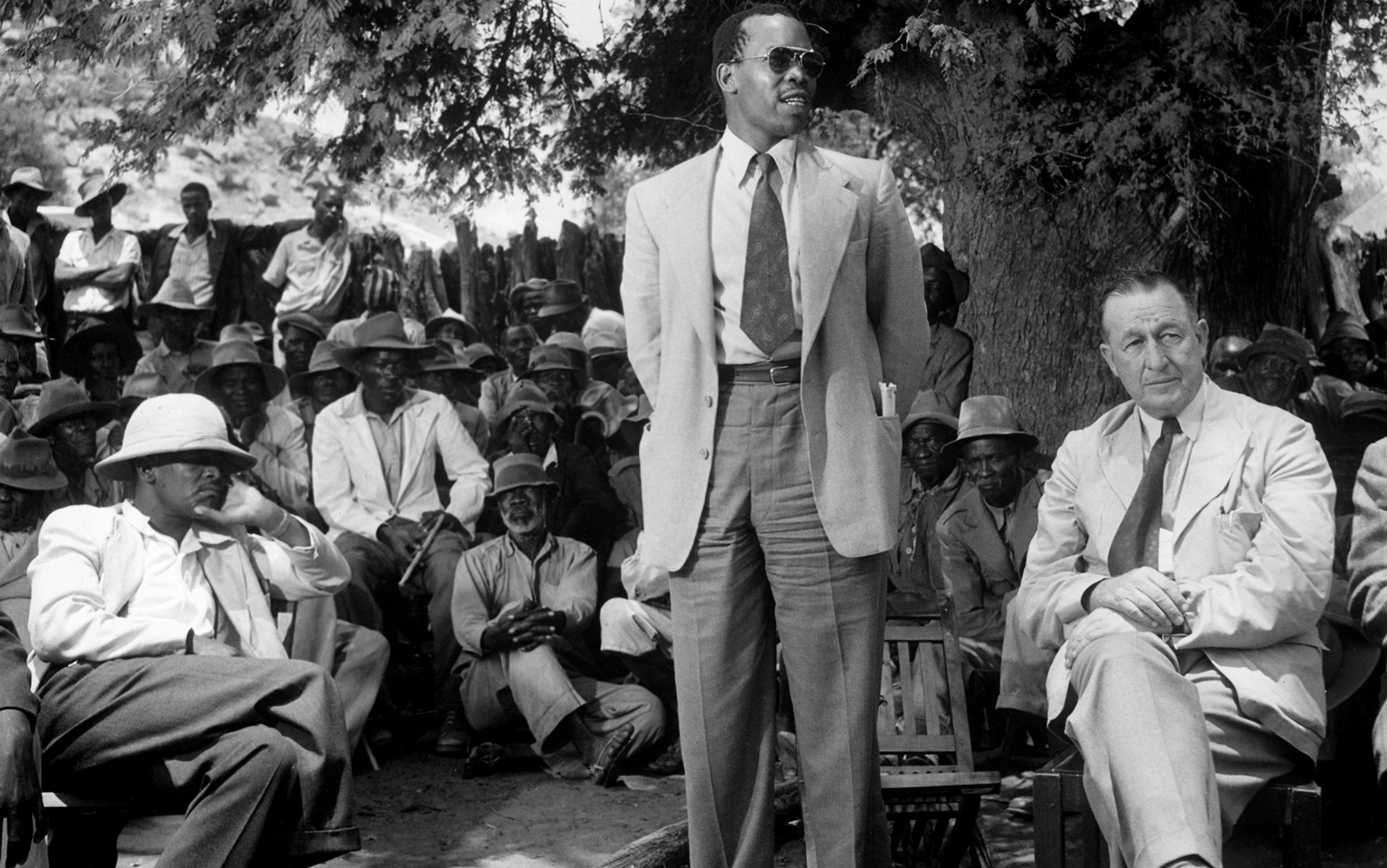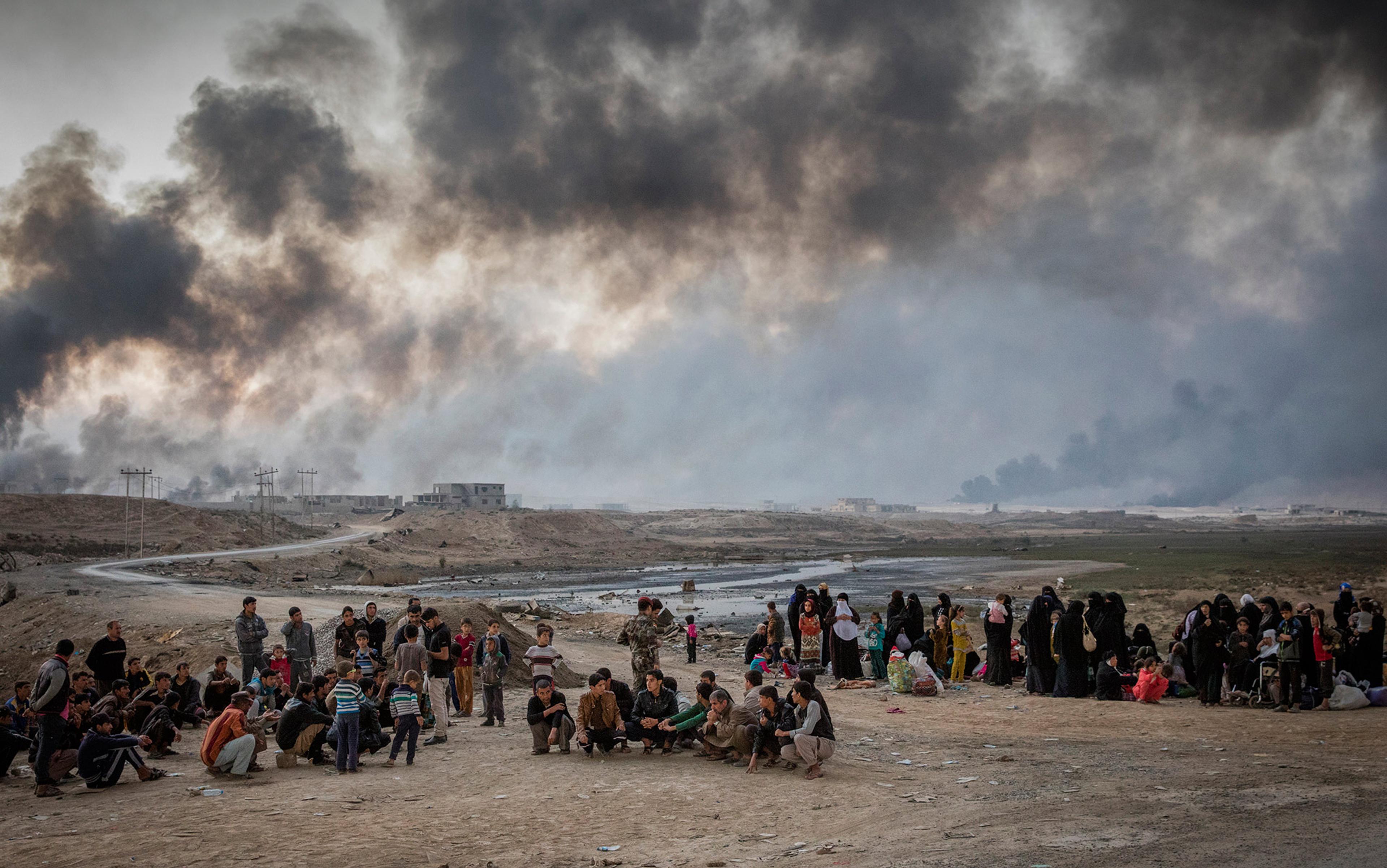There are only two questions in politics: who decides? and who decides who decides? Every country solves these questions in its own way, be it through democracy, autocracy or dictatorship. But however it answers, the same dilemma emerges again at a deeper level. Who gets to say what is or is not a country?
For most of human history, nation states as we now recognise them did not exist. Territories were controlled by powerful local people, who in turn pledged allegiance to distant authorities, favouring whichever one their circumstances suited. In Europe, the tensions in this system eventually led to the Thirty Years’ War, which killed eight million people and only ended in 1648 with a thorough revision of the relationship between land, people and power. The resulting set of treaties, known as the Peace of Westphalia, introduced two novel ideas: sovereignty and territorial integrity. Kings and queens had ‘their’ people and associated territory; beyond their own borders, they should not meddle.
Under this new dispensation, the modern state emerged as an entity in itself, distinct from its ruler. A dense forest of international laws and procedures grew up. At the heart of this forest, two principles circle each other like tigers. The first is self-determination: the idea that an identified ‘people’ has the right to run its own affairs within its own state. The other is territorial integrity: the notion that the borders of an existing state should be difficult to change. Self-determination is dynamic or turbulent: it is all about overturning political conditions deemed to run against the will of the local inhabitants. Territorial integrity is pragmatic and cautious: better the devil you know.
States have a keen instinct for self-preservation; they don’t want their existing borders to be challenged except under tightly controlled conditions, so it is not easy for self-determination to trump territorial integrity in any given case: where might such a precedent lead? Nevertheless, the surge of events sometimes means that existing borders no longer work. When such a situation arises, the best way forward is general agreement between powerful local leaders and the wider international community that a new order is needed. The result, in the best case, is new borders that all other states recognise. The convulsive collapse of European communism led to 15 new states emerging more or less peacefully from the former Soviet Union. Czechoslovakia likewise divided politely into two new states.
Political pressures within a state may force its leaders to face up to the possibility of new borders. A wise modern democracy makes provision for this. In Canada, the narrow Quebec ‘no’ vote in its 1995 referendum stopped the separatist Québécois movement in its tracks. In a year’s time, Scotland will have a referendum on independence: the rest of the United Kingdom does not dispute the right of Scots to form a new state within Scotland’s traditional territory. This has (so far) provided the wider world with a model for how such sensitive, divisive issues ought to be tackled. If those eccentric Britishers decide to get divorced, why should anyone else object?
When there is no clear way peacefully to decide who decides, things can turn horribly violent
The problems get much trickier when a linguistic or cultural community straddles existing borders. The challenge to territorial integrity then affects more than one state, and even significant communities with a credible claim to self-determination lose out. Spain and France together keep the lid on Basque demands for independence. The aspirations of 30 million Kurds to live in a country of their own would require Turkey, Iraq, Iran, Armenia, Syria and possibly Azerbaijan all to agree to reduce their territories, which, of course, is unlikely ever to happen.
When there is no clear way peacefully to decide who decides, things can turn horribly violent. The separation of Bangladesh from Pakistan in 1971 claimed up to a million lives. Hundreds of thousands of people died when Biafra tried to break from Nigeria in the 1960s. More recently, Moscow has sent troops to flatten Grozny and kill thousands of Russian citizens, all to prevent Chechnya from breaking away as a new state. South Sudan became the newest member of the United Nations following a popular referendum in 2011 that was intended to end a long and ruinous civil war.
Intense fighting does not necessarily lead to a clear-cut outcome. Ambiguous ceasefires can drag on indefinitely. Taiwan and its 23 million inhabitants live in a curious twilight zone of international law, recognised by only 22 smaller countries and the Vatican. Cyprus has been divided since 1974. Nagorno-Karabakh and Transdnistria are two forlornly ‘frozen conflicts’ within the former Soviet Union, would-be siblings of that great litter of ex-Soviet states.
And then there is Kosovo, one of the toughest nuts of contemporary international relations, as I discovered when I started work in the British Embassy in Belgrade in 1981.
Located on a plateau between Montenegro, Albania, Macedonia and Serbia, Kosovo covers some 4,000 square miles — less than half the size of the New York metropolitan area. As of August this year, 101 UN member states — a majority of the world’s countries led by the US, Japan, Nigeria and most European Union members — have recognised it as an independent state. Even so, it cannot join the United Nations, because 92 UN member states do not recognise its independence.
These holdouts represent a clear majority of the world’s population and include such global heavy-hitters as China, India, Russia and Brazil, plus four members of the EU. The deadlock is not complete: Egypt, the largest Arab country, declared its support in June this year. But with only five new recognitions so far in 2013, after a modest 12 in 2012, there is no prospect of Kosovo joining the UN in the foreseeable future.
How did such a stalemate arise? To understand that, we need to appreciate the haphazard character of Balkan history. Yugoslavia was cobbled together from some of the remnants of the Austro-Hungarian and Ottoman empires following the First World War. The new nation brought together several different ethno-linguistic communities in one state. Reflecting and exacerbating these divisions, the Second World War saw Yugoslavs killing Yugoslavs on a fearsome scale. In the rush for power that followed, Josip Broz Tito and his communists emerged on top. Tito invented a constitutional solution for Yugoslavia’s woes. He created six republics within local borders that had some historic resonance: Slovenia, Croatia, Serbia, Bosnia & Herzegovina, Macedonia and Montenegro. Within Serbia, two ‘autonomous provinces’ were set up: Kosovo and Vojvodina. In the later years of Yugoslavia’s history the state presidency was an eccentric eight-person job-share among the six republics and the two autonomous provinces: Kosovo and Vojvodina had their own voices at the highest national level. This system hung together right up until Tito’s death in 1980. Then, without the great dictator around to impose control, no one could decide what the country actually was — a single, centralised state or an exotic federation.
It’s not easy to make a country work when half its population reject the basis for its existence
During the 1980s, while communism was collapsing across Europe, Yugoslavia’s contradictions became unbearable. Two republics — Slovenia and Croatia — played the self-determination card and broke away from the Yugoslav framework. An indignant Serbia, now led by Slobodan Milošević, deployed the Yugoslav National Army against them. Milošević argued that it was wrong to divide the country along the borders of its internal republics, borders that had (he claimed) been drawn up to disadvantage Serbs; why should Serbs living in Croatia or Bosnia suddenly find themselves minorities in these new states?
Milošević had some good points, but his willingness to use violence against his neighbouring republics repulsed those Western nations that might have accepted his logic. In any case, the international community had no appetite for rummaging around in the region’s messy history to try to negotiate new borders that gave enough self-determination to every Balkan community. Where to start? How to get eggs from an omelette? Plumping for what looked like the easier option, western governments joined with post-communist Moscow to work out a plan based on Yugoslavia’s existing internal republics.
Slovenia made sense as a new independent state: Slovene-speakers predominated and no one seriously disputed their historic territory. Elsewhere the situation was much less clear. The large Serb communities in both Croatia and Bosnia & Herzegovina wanted to stay within a national framework that included Serbia, and they had active military support from Milošević’s Belgrade. Conflict erupted, the worst of it between Bosnia’s Muslims, Serbs and Croats. The Bosnian conflict ran from 1992 to 1995, ending with the Dayton peace accords: if the warring Bosnians could not decide an outcome for themselves, the world would do it for them. The US negotiator Richard Holbrooke forced the agreement through with European and Russian support and the close involvement of the leaders of Croatia and Serbia, thereby achieving full international support.
The new Bosnian constitution was a hotchpotch of ethno-territorial compromises. The state’s borders were determined by the hotly contested territorial integrity of an internal Yugoslav republic, while self-determination claims for Bosnia’s Croat and Serb communities were simply ignored. It’s not easy to make a country work when half its population reject the basis for its existence. Eighteen years later and despite colossal financial support from the US and EU, Bosnia barely functions as a modern state.
While the Dayton accords were being pushed through, Kosovo was part of a much reduced ‘Federal Republic of Yugoslavia’ that comprised only two of the original six Yugoslav republics, Serbia and Montenegro. The time had come, it seemed to the Kosovars, Kosovo’s Albanian-speaking community, to break from Belgrade’s control. In 1996 a self-styled Kosovo Liberation Army began attacking police stations. Belgrade hit back, and tens of thousands of Serbia’s own Albanian-speaking citizens fled their homes. NATO bombed Serbian targets, trying to make Milošević abandon his heavy-handed military operations against Kosovan targets. In June 1999, UN Security Council Resolution 1244 put Kosovo under UN supervision and started a political process to decide its status. Serbian military forces left Kosovo. After years of diplomatic machinations — and, this time, openly angry disagreements between Western capitals and Belgrade and Moscow — Kosovo proclaimed itself independent in February 2008.
Today, the fighting has stopped, but the struggle has moved to a different level — a diplomatic battle over Kosovo’s status. Kosovo asserts its right to self-determination amid the wreckage from the collapse of Yugoslavia. Serbia insists that its territorial integrity has to be respected.
There is one fact in Kosovo that everyone accepts: Kosovars heavily outnumber Serbs. After the Second World War, the Yugoslav authorities’ attempts to improve the lot of the country’s Albanian-speaking population led to a sharp drop in child mortality without a correspondingly speedy reduction in family size. A boom in Kosovar numbers now ripples down the decades. Each year some 15,000 more Kosovars are born than die. Each year in Serbia some 33,000 more Serbs die than are born. The numbers currently are roughly 50,000 a year in Kosovo’s favour.
These discrepancies don’t sound large, but they mount up. Less than a generation from now the population difference between Serbia (currently some seven million) and Kosovo (currently approaching two million) is likely to shrink by nearly one million people. You see the difference. Kosovo is scruffy bustle, full of young people running kiosks and workshops or just moving around. Cross into Serbia and the scene abruptly empties out: lush meadows and tidy little farms, but eerily few humans. Sooner or later Kosovars will be trying to make lives for themselves across that border. A de facto ‘greater Albanian space’ will seep outwards into Serbia.
For purely demographic reasons, Serbia’s position is doomed to fail. In today’s world, numbers count. And the Kosovars have the numbers on their side
For decades successive leaderships in Belgrade have watched this demographic drama unfold. Dobrica Ćosić, the Serb nationalist writer who later became president of the rump Federal Republic of Yugoslavia, feared that these demographic forces would leave Serbs outnumbered not just in Kosovo but in Serbia as a whole. He told me in 1983 that Kosovo had to be cut off to prevent greater losses: ‘Sometimes you amputate the cancerous leg to save the body.’ No Serbian leader has dared take on this grisly task.
Both Serbs and Kosovars insist that, on any fair view of the problem, Kosovo ‘belongs’ to their side. They cite all sorts of historic and other evidence to support these mutually incompatible claims.
Serb experts agree that the ethnic balance of the Kosovo population has ebbed and flowed down the centuries. Nevertheless, ancient Serb monasteries and other sites attest to Serbia’s historic claim to the land. Serbs insist that it is not fair to accept today’s heavy Albanian-speaking majority as a decisive argument in favour of self-determination, because that advantage is artificial: for decades, external force and communist-era manipulations have whittled down Kosovo’s Serbian population, tilting the numbers in the Albanian-speakers’ favour. They add that NATO’s intervention in the late-1990s led to tens of thousands more Serbs leaving, and that the UN Administration then failed to set up a comprehensive ‘returns’ programme like the one that featured so prominently in post-conflict Bosnia.
In Bosnia, the Serbs point out, Holbrooke’s Dayton settlement gave the three rival communities a blunt message: Stop fighting! Get along with each other nicely, in a single state framework. Allow people back to their homes! Yet just down the road in Kosovo, the American-led policy is the opposite: If you Kosovars want to leave a democratic Serbia, who are we to stop you? Indeed, here’s plenty of our taxpayers’ money, with few strings attached! Returning Serbs to their homes in Kosovo? Not a priority. Asked to explain these inconsistencies, Western politicians study their shoes.
Kosovar experts coolly reply that Kosovo’s Albanian-speakers have plenty of their own historic claims to territory in this part of Europe. More importantly, the Serbs need to accept that their own sustained bad policies have brought about their downfall. For decades if not centuries, Serbs have looked on Kosovars as inferiors: ‘The snow’s deep — get a Šiptar to sweep it,’ they say, where Šiptar is an ethnic slur on Albanians. As one grim episode after another has shown, Serb leaders in Belgrade have defaulted to violence when dealing with legitimate Kosovar demands. In the 1990s Milošević drove hundreds of thousands of Kosovars — Serbia’s own citizens — out of the territory. Kosovars believe that the Serbian dream is an idealised Kosovo without them, an ambition that is as ignoble as it is unachievable, except by means of so-called ‘ethnic cleansing’. Given all this, say the Kosovars, how can we be expected to live under Serb rule? Kosovo had the substantive status of a republic in communist Yugoslavia: now the overwhelming majority of Kosovo’s people want to follow all the other Yugoslav republics that have broken free from what they see as Serbia’s malign and lugubrious nationalism.
More than half the countries in the world see the political logic and moral justice in this position. For purely demographic reasons, Serbia’s position is doomed to fail. In today’s world, numbers count. And the Kosovars have the numbers on their side.
States either win global recognition and a flag at the United Nations, or they don’t. Kosovo is either part of a modern Serbia, or it isn’t. Once Washington, London and other capitals decided to recognise Kosovo within its Yugo-era borders — in the face of strong opposition from Moscow, Beijing and many other important power-centres — all options for a single-state solution were lost. We could have reached into the European and global bran-tubs of precedent to find something that might work: Swiss-style cantonisation, or EU-supported power-sharing, or new ‘entities’ echoing the Dayton deal in Bosnia, or far-reaching autonomy such as Greenland enjoys under Denmark. Generous financial assistance and technical support could have launched the new deal.
Had the two sides still shown implacable unwillingness to live under one flag, we could have accepted this reality with a dash of pragmatism (usually the wisest approach) and proposed a deal that traded territorial integrity for self-determination. Kosovo would get its full independence — including recognition from Belgrade — only if some of its Serb communities were offered the option to stay in Serbia. Meanwhile, the Preševo Valley community of Albanian-speakers in Serbia might be invited to choose to join Kosovo. Both sides would be expected to make strategic compromises, with internationally supervised border adjustments reflecting the democratic wishes of the different local communities. The rest of the world would have nodded at this good sense and waited to endorse any deal that emerged.
In recent years, Serbia has floated such ideas and more. They have all met with EU and US disdain as cheap tricks to promote nasty ‘mono-ethnicity’ – as if Kosovo’s independence were not itself all about self-determination for a largely mono-ethnic Kosovo. Kosovars have no reason not to play for the maximum, and neither Europeans nor Americans use their huge leverage to challenge them. Serbia therefore falls back on Belgrade’s traditionally good ties with other key world capitals. It presses the attractive argument that, these days, it’s a wise move to see what Washington and Brussels want and to do the opposite.
Thus today’s diplomatic stalemate that divides the planet. Kosovo in effect vetoes Serbia’s European Union bid. Serbia makes it clear that, without its blessing, Kosovo won’t join the EU or the UN. This deadlock over territory and allegiance is one that the wily princes, dukes and bishops drafting the Peace of Westphalia would easily recognise.
No diplomat can be surprised that so many capitals round the world refuse to follow the clumsy lead of the US, London and Brussels on this issue. The vast majority of the countries that have not recognised Kosovo don’t care about Kosovo or Serbia. For these countries it’s not about Balkan bickering — it’s about their own security. Yes, some minority communities want to run their own affairs. But territorial integrity underpins the way the whole world works: grave dangers come from trashing that fundamental principle in the face of serious international objections. It’s one thing to amputate parts of your gangrenous leg yourself. It’s quite another for NATO to lunge in, wielding a rusty hacksaw. Good grief, who might be next? Syria?
